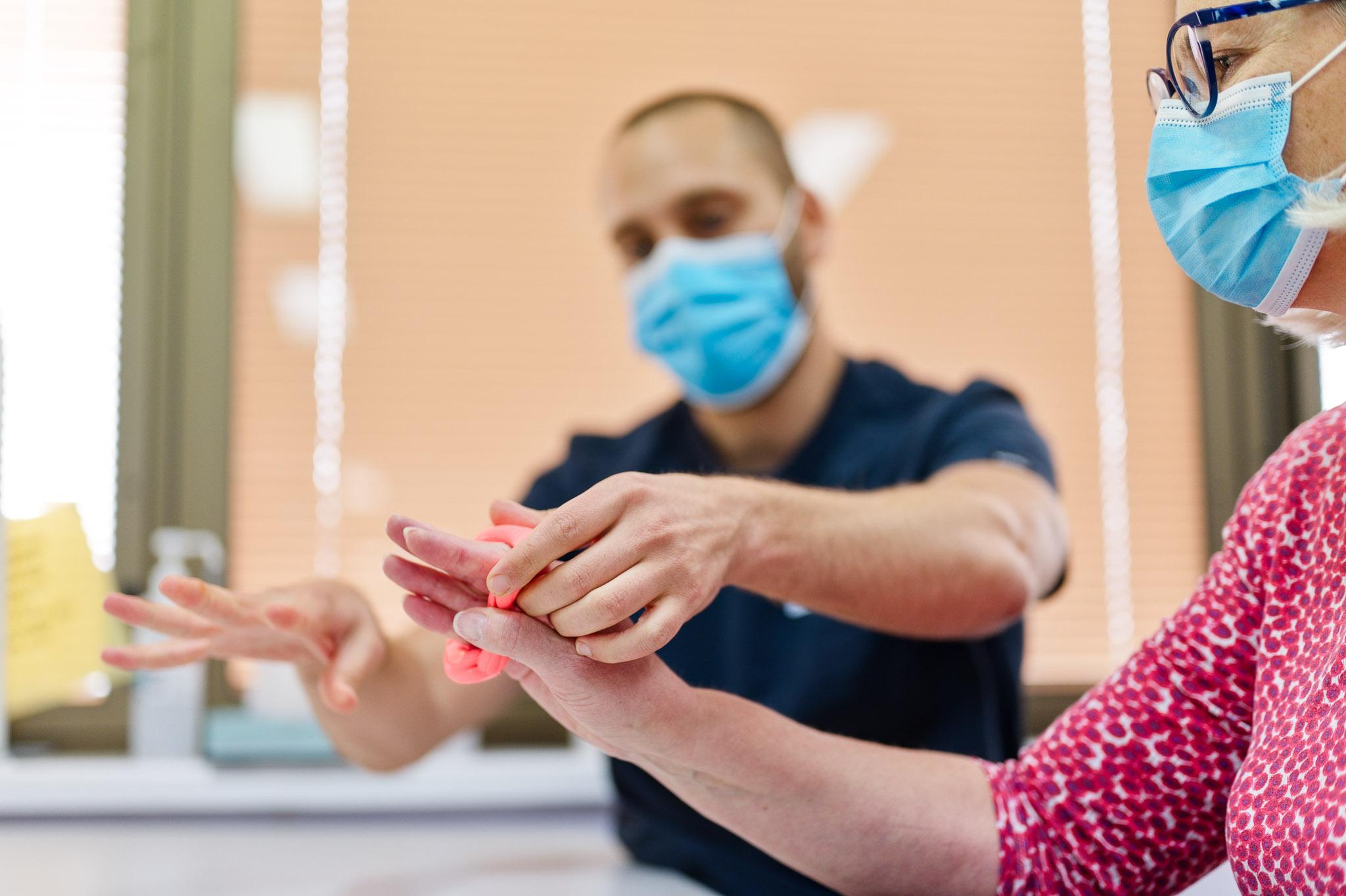4 September 2025
Learning that sets the standard for OTs Working with Children, Young People & Families
Every occupational therapist deserves to feel confident in their practice – this is especially true for foundational practitioners, whether they are new to the profession, returning after a break from practice, or moving into a new area of practice.

20 August 2025
Occupational Therapy - Frequently Asked Questions
Occupational Therapy – FAQs provides clear answers to common queries about occupational therapy, understand its role in promoting health, wellbeing, and participation in daily life.
19 August 2025
FAQ: Environmental and Home Modifications
FAQs on home and environmental modifications.
18 August 2025
Q & A with Kate Purslowe: Understanding the Aged Care Quality Standards updates
Occupational therapist Kate Purslowe has worked in the aged care sector since 2012, across residential aged care, transition care and the NDIS. She is currently the Allied Health Coordinator at Brightwater Group and a sessional academic at Curtin University. Kate brings a deep and practical understanding of the aged care system, service delivery, and is presenting at OTA's upcoming event CPD Empower Perth.
14 August 2025
Poster - Understanding occupational therapy in education
Download the "Understanding occupational therapy in education" flyer.
14 August 2025
Poster - An ABC of Occupational Therapy in Education
Download the "An ABC of Occupational Therapy in Education" poster.
13 August 2025
Advocacy and policy update 14 August 2025
Read about OTA policy and advocacy updates and developments this week, including: clarity on charging for kilometers for NDIS travel; aged care indicative pricing; and the Senate Committee Inquiry on Aged Care Service Delivery.

12 August 2025
Nominations for Board Director and WFOT Delegate role
There are five nominees to fill three elected Board Director positions. Members will be asked to select their top three choices.
7 August 2025
Advocacy and policy update for 7 August 2025
Read about OTA policy and advocacy updates and developments this week, including Aged Care Indicative Pricing, Medicare Benefits, WorkCover WA updates and more.
7 August 2025
Advocating for improved access to occupational therapy services through Medicare
OTA is calling for better access to Medicare funded OT services for those with chronic conditions.

5 August 2025
State and Territory Advisory Councils
State and Territory Advisory Councils are advisory councils of OTA members from across states and territories to bring voice to local and state-based issues affecting occupational therapists and communities. Advisory Councils provide pivotal intelligence to inform OTA of the opportunities, emerging issues, and changing landscape to enable OTA to be responsive to all of our members' needs, no matter where they reside.
5 August 2025
Consultation on Foundational Supports for children with developmental concern, delay and/or disability and their families, carers and kin
Occupational Therapy Australia (OTA) welcomes the opportunity to provide a submission in relation to targeted foundational supports - Foundational Supports for children with developmental concern, delay and/or disability and their families, carers and kin.
4 August 2025
Submission: Productivity Commission – Final Review of National Mental Health and Suicide Prevention Agreement
In this interim report, the Productivity Commission presents its initial findings and draft recommendations.
4 August 2025
Submission: Productivity Commission Interim Report on Final Review of National Mental Health and Suicide Prevention Agreement
The Productivity Commission (PC) has been asked by the Australian Government to conduct the final review of the National Mental Health and Suicide Prevention Agreement.
31 July 2025
Advocacy and policy update for 31 July 2025
Read about OTA policy and advocacy updates and developments this week, including NIDS Supports lists developments & travel claiming support; WA and Qld compensation schemes changes and more
9 July 2025
Exploring general practitioners' perspectives on Occupational Therapy in Mental Health Care
The aim of this research is to investigate general practitioners' perspectives on occupational therapy's role in mental health care, and the perspectives of occupational therapists providing services under the Better Access Mental Health Scheme (BAMHS).
1 July 2025
The role of occupational therapists in mainstream secondary schools
The study is about exploring the roles of occupational therapists who are directly-employed (school-employed) within mainstream secondary schools.
23 June 2025
Thousands join our call for fair NDIS pay
OTA has launched a coordinated, strategic campaign in response to the devastating NDIS decision to halve travel rates and continue freezing hourly pay for occupational therapists. We're fighting this decision on every front and will continue to take strong action to advocate for OTs and access to vital services for NDIS participants.
10 June 2025
OTA Submission to the Qld Mental Health Select Committee | Mental health outcomes for Queenslanders
OTA provided a submission to the Qld Mental Health Select Committee on their Inquiry into the opportunities to improve mental health outcomes for Queenslanders.
6 June 2025
Artistic expression for people with disability: AI to foster creativity
Among the most captivating and controversial technological advancements is the rapid proliferation of artificial intelligence (AI) image generation tools. These sophisticated algorithms, capable of transforming text-based prompts into intricate visual imagery, are not merely a novelty; they represent a profound shift in how art is conceived and created and pose some significant ethical issues.
5 June 2025
Submission: Select Committee on Foundational and Disability Supports Available For Children and Young People In New South Wales
OTA welcomes the opportunity to provide input to the NSW Government’s approach to development of foundation supports for children and young people with disability, developmental delay or concerns.
22 May 2025
DVA Overview for Occupational Therapists
The Department of Veterans’ Affairs (DVA) recognises that health care providers play a key role in providing treatment for DVA clients. Occupational therapists are essential allied health professionals who provide services to clients who hold DVA Veteran Cards.
15 May 2025
FAQ: My Aged Care (MAC)
Frequently asked questions about My Aged Care (MAC) here.

24 February 2025
Terms and Conditions
The information provided on this website is for use of a general nature only and is not intended to be relied upon as, nor to be a substitute for, specific professional advice. No responsibility for loss occasioned to any persons acting on or refraining from action as a result of any material on this website can be accepted. This includes links to all external organisations.

19 February 2025
Help for members Digital Transformation and OTA Connect
Help for members through OTAs Digital Transformation.

3 October 2024
Team and Governance
OTA is led by a team of dedicated professionals who seek to protect and progress the profession.

3 October 2024
Capability Frameworks
Occupational Therapy Australia’s capability frameworks propose what best practice looks like in a particular area across the career pathway. Each framework outlines a set of capabilities that occupational therapists may use in their area of practice at the foundational, intermediate or senior practitioner level.

3 October 2024
CPD and Events
Our evidence-based CPD and events will prepare you for every situation and empower you with the skills and knowledge to excel in your practice. We offer learning opportunities across all practice areas and levels of experience.